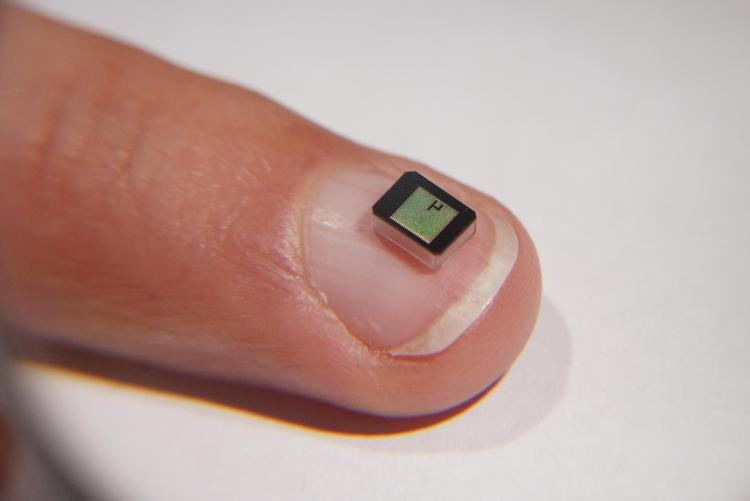

Thanks to international collaboration, a 70-year-old blind man recently received state-of-the art retinal implants in a groundbreaking operation at Rome's Policlinico A. Gemelli hospital performed by leading ophthalmic surgeon Stanislao Rizzo.
"The patient will now be able to see his nearest and dearest, recognise obstacles and objects," Rizzo told Adnkronos Salute.
"From a starting-point of total darknesss, even just being able to give back some light is a major result," he underlined.
Rizzo is a professor of ophthalmology at Rome's Catholic University of the Sacred Heart and director of the Agostino Gemelli IRCCS University Hospital Foundation's ophthalmology complex operational unit.
Rizzo's patient, who has an hereditary disease of the retina, is able to see electronically, thanks to a pair of 'hi-tech' glasses connected to his retina, the surgeon explained.
"He didn't have any complications. In theory the prospects for these implants are absolutely excellent - we'll wait a few weeks to see the results. I hope the patient will be able to recover complete visual autonomy. At the moment, he must do rehabilitation and be guided."
In what is - fortunately - only a small percentage of cases, hereditary diseases of the retina can lead to total blindness, Rizzo said.
"Until a few years ago, these diseases were considered incurable; we had to tell our patients that there was no effective treatment to prevent blindness arising from them," he said.
"Today, we have effective treatment: gene therapy. That is to say altering the patient's genetic makeup by introducing a virus, in this case a 'good pathogen' that corrects the error in the patient's DNA."
Electronic retinal implants are used when the hereditary disease is more advanced and the patient's sight is limited to light, Rizzo noted.
"I first gained experience of such implants in 2011 in Tuscany with the 'Argus' retinal prosthetics, which had 60 electrodes and which gave good results. Patients recovered a certain amount of autonomy and were able to see images, shadows, objects," Rizzo stated.
"A few days ago at the Gemelli, we used a new, more sophisticated system of retinal implants with over 400 electrodes, which probably gives the patient better vision. The patient, who was operated on under general anaesthetic, did not have side effects," Rizzo added.
The surgery lasted around two hours, a long time in ophthalmology, where a cataract operation takes 20 minutes and 24 hours later the patient can already discern light, Rizzo said
"An experimental international protocol underpins the operation carried out at the Policlinico A. Gemelli hospital, Rizzo noted.
"We don't know what kind of advantages it will give patients in future, but the prospects are certainly extraordinary. This technology is the fruit of collaboration with an Israeli company that produces electronic retinas and a German one that produces glasses and microscopes, which makes the electronic glasses."
While great enthusiasm in the medical world over the potential offered by state-of-art retinal implants, the experimental protocol is aimed at verifying their safety, Rizzo pointed out.
"We need to wait a couple of months for definitive results. A fundamental aspect will be post-surgery rehabilitation, because the patient needs to learn to see in a different way. This kind of technology enables electronic, not natural vision: pixelated black and white images, or grayscale."